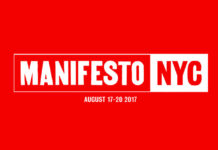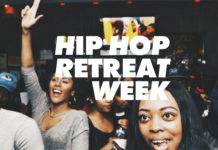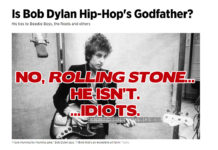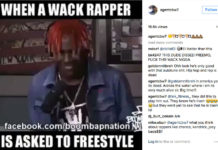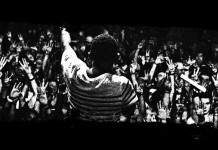This weekend (9/18-9/19) the Department of Performance Studies at NYU, will host “Show and Prove: The Tensions, Contradictions, and Possibilities of Hip Hop Studies in Practice,” a two-day event featuring panels, films and discussions featuring new work in the “burgeoning field of Hip Hop Studies”. The event is free and open to the public, and will contain many thought-provoking talks by scholars, authors and participants in hip hop music and the study of hip hop culture.
Full details after the jump, as provided by the organizers:
Show and Prove is a two-day event featuring new work in the burgeoning field of Hip Hop Studies, showcased through discussions, panels, performances and more. The goal is to create a platform for new generations of Hip Hop scholars—in conversations with practitioners & community members—to openly address the challenges of doing academically rigorous work that gives back to Hip Hop communities in meaningful ways
This symposium is free… and open to the public. All students and lovers of Hip Hop—whether they come out of the classroom, the studio, the stage, or the streets—are invited to participate.
Sunday, 9/19 from noon-6pm: The Show & Prove Film Showcase will feature short documentaries and trailers that demonstrate how Hip-Hop is being used for research, and as an educational and organizing tool around the world. Curated by Martha Diaz, Director of the Hip-Hop Education Center.
CONFERENCE SCHEDULE for Saturday 9/18
**Subject to change. More details to come!**
8:00-10:00 am
Registration (721 Broadway, Lobby; Room 611 afterward)8:45-9:15 am
Opening Remarks, Acknowledgments, Conference Goals (Room 612) By Dr. Imani Kai Johnson9:15-9:30 pm
Artist’s Introductions to Photographic Exhibits (Room 612) Featuring work by Amanda Adams-Louis & Victor Chiu.9:30-11:10 am
Public Visibility: Gender, Sexuality, & Race (Room 612)
This panel explores the ways that Hip Hop has been used by some to foster an accepted public life and by others to shift the boundaries of the private sphere.
• Jasmine Elizabeth Johnson, “What the Balance Held: Lauryn Hill and Erykah Badu’s Negotiation of Black Motherhood in the Public Sphere”
• Demetrius Noble, “Culinary Occupation: Hip Hop & the Transgendered Kitchen”
• Laurica Brown, “Incite to Rhyme: Lesbian Hip Hop Artists in the San Francisco/Bay Area”
• Dr. Kathryn Trevenen “Queering the Beat: From Homohop to Human Rights”
Respondent: Dr. Celiany Rivera-Velázquez and Dr. Aisha DurhamMethodology, Pedagogy, & Educational Practice (Michelson Theater)
Papers examine the academic possibilities in education, methodology, and pedagogy, from high school to graduate school.
• MiRi Park, “Using Academic Oral History Methodology in Hip Hop Scholarship”
• Jen Johnson, “Hip Hop in Competitive Academic Policy Debate – Cultural Resistance, Code-Switching, and Speaking Truth to Power, From the Streets to the Academy”
• M.C. K~Swift, “Hip Hop Contains Pedagogy”
• Dr. Johan Söderman, “Academic rap! Strategies towards incorporating the hip-hop culture at the university”
Respondent: Dru Ryan11:10-11:15am Coffee Break
11:15am-12:45pm
Aesthetic Dimensions of Hip Hop (Michelson Theater)
Papers analyze rap, graffiti, popping, and performative identities, exploring the varied qualities of Hip Hop’s aesthetic dimensions.
• Joshua Bennett, “I Love it When You Call Me Big (Poppa)”
• Jens Althoff, “The Influence of Blaxploitation on Hip Hop Music”
• Jessica N. Pabón, “Aesthetic Liaisons: Feminism and Masculinity in Graffiti Art”
• Naomi Elizabeth Bragin, “Popping and Other Dis/Appearing Acts”
Respondent: Dr. Jenny Stoever-AckermanEngaging Hip Hop’s Global Context (Room 612)
Community discussion about the challenges of Hip Hop research that substantively engages its globality. We open with a short film.12:45-2:00 pm Lunch (*Lunch will be provided.)
2:00-3:00 pm
Roundtable Discussion Topic: “The Tensions, Contradictions, & Possibilities of Hip Hop Studies” (Michelson Theater)
A discussion on being uniquely situated between the Academy and various Hip Hop communities from a panel of scholars, students, and scholar-practitioners.3:00-3:10 pm Coffee Break
3:10-4:30 pm
Performance, Embodiment, & Meaning (Michelson Theater)
Panelists explore performance’s capacity to communicate and shape cultural meaning and racial identity. Short solo performances follow.
• Dr. Nicole Hodges Persley, “People in Me: Sarah Jones and Danny Hoch’s Sampling and Remixing Narratives of a Polycultural American Dream”
• d. Sabela grimes, Untitled
Respondent: Shanté SmallsCultural Identity & Islam (Room 612)
Presenters explore the role of Hip Hop in the lives of Arab American, Puerto Rican, and African American Muslims.
• Suad Abdul Khabeer, “Holding onto Hip Hop: How to Study Hip Hop in Everyday Life”
• Omar Ramadan, “Translating Insha’Allah to Ojala: Illuminating the Expression of Puerto Rican Muslim Identity Through Hip Hop Art”
• Maytha Alhassen, “The Modern Remix of the Tawhid of Trinity: Black-Arab Muslim Hip Hop in the US”
Respondent: Zaheer Ali4:30-4:35 pm Coffee Break
4:35-6:00 pm
Claiming Hip Hop Through Its Elements (Room 613)
Issues of authenticity, race, credit, and belonging are explored in these examinations of Hip Hop’s elements.
• Crystal McKinnon, “Fighting to Fight Again: Contemporary Indigenous Hip Hop resisting Australian settler colonialism”
• Sarah, Jamal, “Consciousness the New (B)lack? Unpacking Mainstream Music Trends’ Use Of Resistance Discourse”
• Dr. Antonio T. Tiongson Jr., “Claiming Hip Hop: Authenticity Debates, Filipino DJs, and Contemporary U.S. Racial Formations”
Respondent: Dr. Joseph SchlossEngaging Untapped Local Resources: Oral Histories and New Perspectives on Hip Hop (Michelson Theater)
Features oral histories of respected local Hip Hop community members. They will discuss youths in Hip Hop, opinions on scholarship, popular culture & more.6:20-8:30 pm Closing, Reception, & Performances (Room 612)
*Open wine bar.LOOKING FORWARD TO SEEING YOU IN THE FALL!
*Co-Sponsors include the Performance Studies Department of NYU, the Center for Multicultural Education and Programs, the Asian/Pacific/American Institute at NYU, the Hip Hop Theater Festival, the Office of LGBT Student Services, the Hip-Hop Education Center for Research, Training, and Evaluation, and the Office for International Students and Scholars
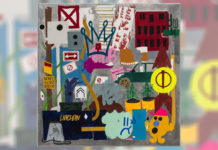
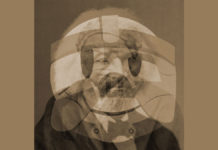
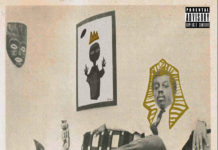
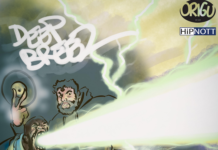
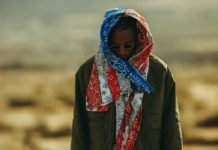
![The Underachievers – Crescendo [VIDEO]](https://www.birthplacemag.com/wp-content/uploads/2017/08/hqdefault-2-218x150.jpg)


![Fat Joe & Remy Ma ft. The-Dream – Heartbreak [VIDEO] Fat Joe Remy Ma The Dream - Heartbreak Video](https://www.birthplacemag.com/wp-content/uploads/2017/05/fat-joe-remy-ma-218x150.jpg)
![JSWISS featuring Chandanie – LML [VIDEO] JSWISS featuring Chandanie - LML [VIDEO]](https://www.birthplacemag.com/wp-content/uploads/2017/05/JSWISS-218x150.jpg)

![Akinyemi Ends Summer With “Summers” EP Release Show [9-17-17] Akinyemi 'Summers' EP release show at Brooklyn Bazaar](https://www.birthplacemag.com/wp-content/uploads/2017/09/summers-featured-218x150.jpg)
![4th Annual NYC VS EVERYBODY Yacht Party [9/16/17] #VSYacht 4th annual NYC VS Everybody Yacht Party#VSYacht](https://www.birthplacemag.com/wp-content/uploads/2017/09/vsyacht-218x150.jpg)
